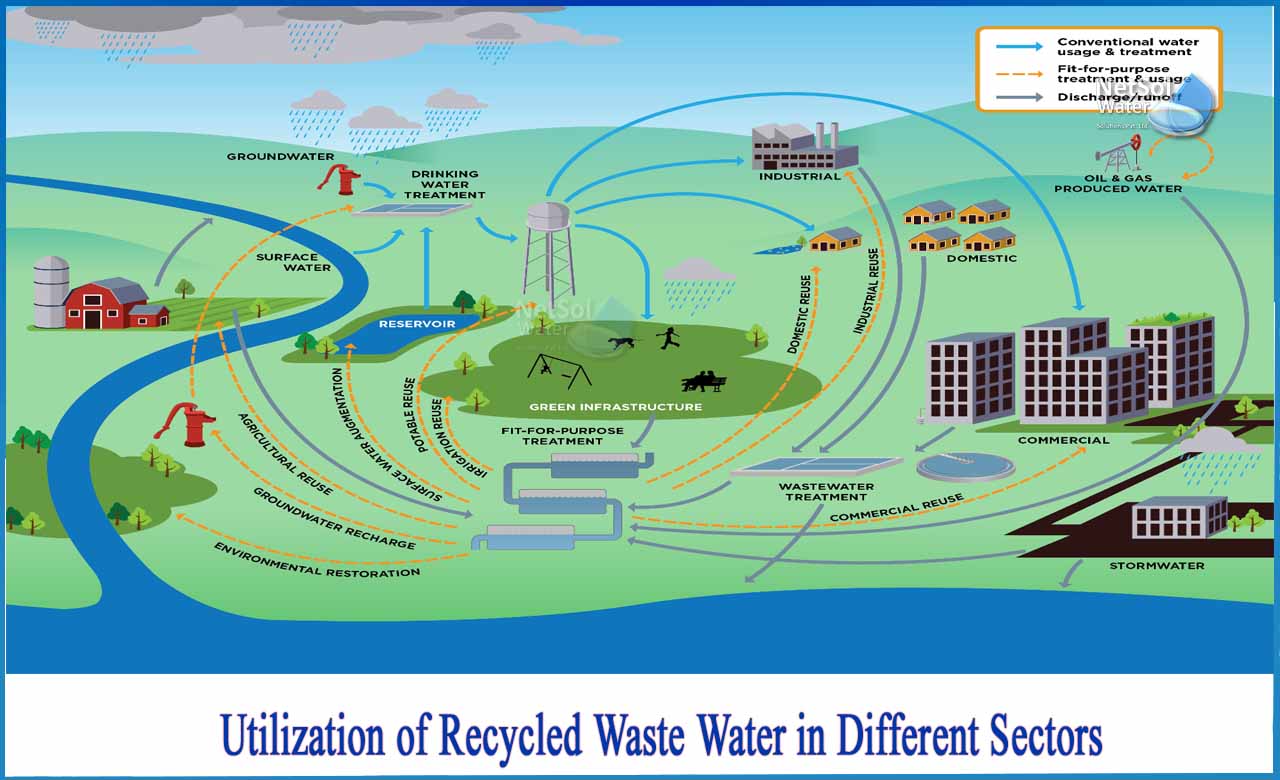How to utilise of recycled waste water in different sectors?
The use of wastewater for a number of uses is gaining appeal as a way to conserve depleting freshwater supplies. Wastewater and greywater reuse are increasingly being seen as a technique of combining water and nutrient recycling, better family food security, and improved nutrition for low-income families. Economic and environmental pressures, as well as the conservation ethic, have resulted in widespread and expanding applications for wastewater recycling, such as irrigation of food and non-food crops, green spaces, reclaiming arid land, fire systems, industrial cooling or processing, sanitation, and even as indirect and possibly direct sources of drinking water.
The productive use of wastewater also helps to reduce the environmental effect of sewage or industrial effluent disposal. The final use of wastewater defines the needed water quality and management techniques to assure safety. WHO and several countries have developed guidelines and standards for the safe use of wastewater in agriculture and other sectors which will beneficial for all.
Use in space
Water is a precious commodity in space. As a result, it is collected in a unique manner aboard to the International Space Station (ISS).
NASA scientists devised a device that will convert up to 10 kilos of condensate, crew urine, and toilet water to pure distillate. This distillate is combined with other effluent from the cabin and converted into drinking water for the crew using a water processor.
Use in beer production
The problem of recycled water utilization in the beer business has been addressed numerous times.
Application in industry
Recycled water is a low-cost solution for cooling operations in industrial manufacturing. It is utilized in industrial cooling and evaporation towers of power plants and oil refineries.
Recycled waste water may also be used in the building industry. For example, treated wastewater is added to a concrete mix that is used to build sidewalks, walkways, walls, and buildings.
Use in agriculture
Recycled wastewater is utilized to irrigate agricultural land in many countries.In addition to crops and grains, treated wastewater is often used to irrigate municipal parks, meadows, gardens, and sports areas.
Treated waste water also helps to refill water streams, which benefits vegetation development and the maintenance of a proper level of water levels.
Human application
In certain situations, treated wastewater can be consumed directly or utilized for cooking by an average person.
The city's drinking water situation is so dire that it plans to use up to 55 percent of its recycled wastewater to quench the population's thirst by 2060.
Water Companies might assist with this by processing and supplying wastewater, primarily to industrial production.However, enlightening the public about the viability of recycled water for far more commercial use, such as direct drinking is important.
Water being a very scarce resource, is to be conserved and thus waste water should be re-used for as many as applications we can.




